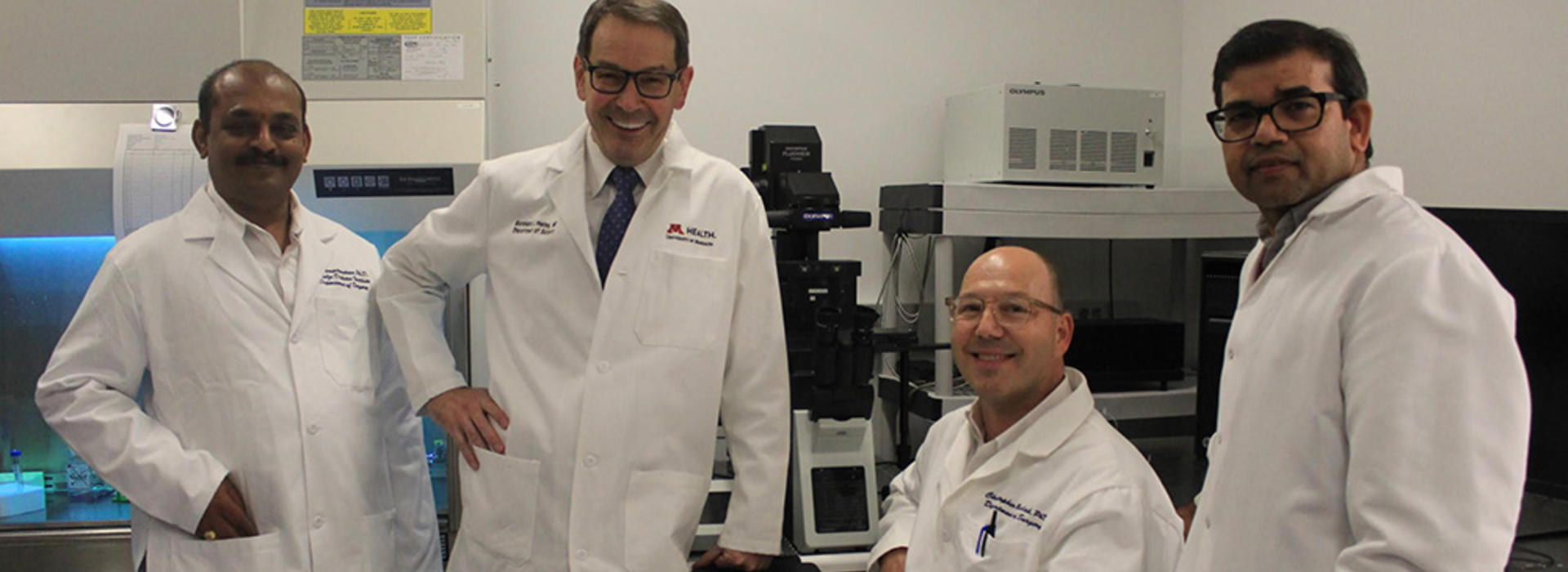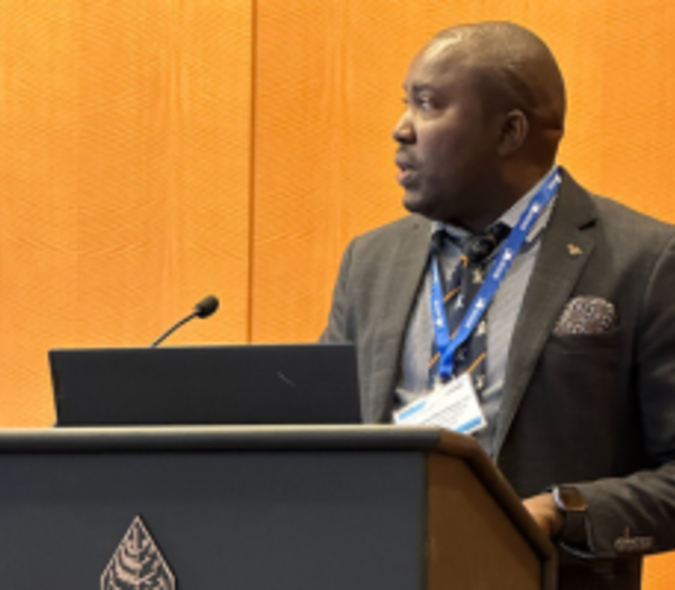
University of Minnesota Achieves Transplant in Monkeys Without Long-term Immune-fighting Drug
For decades, immunologists have been trying to train the transplant recipient’s immune system to accept transplanted cells and organs without the long-term use of anti-rejection drugs. New University of Minnesota preclinical research shows that this is now possible.
In a study published in Nature Communications, researchers at the University of Minnesota Medical School’s Department of Surgery and Schulze Diabetes Institute, collaborating with colleagues at Northwestern University, have maintained long-term survival and function of pancreatic islet transplants despite complete discontinuation of all anti-rejection drugs on day 21 after the transplant. This study was performed in a stringent preclinical transplant setting in nonhuman primates, one step away from humans.
For many patients with end-stage organ failure, transplantation is the only effective and remaining treatment option. To prevent transplant rejection, recipients must take medications long-term that suppress the body’s immune system. These immunosuppressive drugs are effective at preventing rejection over the short term; however, because anti-rejection drugs suppress all of the immune system nonspecifically, people taking these drugs face the risk of serious infections and even cancer. Additionally, non-immunological side effects of immunosuppression, such as hypertension, kidney toxicity, diarrhea, and diabetes diminish the benefits of transplantation. Finally, immunosuppressive drugs are much less effective at preventing transplant rejection over a long period of time, thereby leading to graft loss in many recipients.
Because a growing population of chronically immunosuppressed transplant recipients face that impasse, which might adversely affect their survival, generations of immunologists have pursued immune tolerance as the primary goal in the field of transplantation medicine. Inducing tolerance to transplants would eliminate the need for chronic immunosuppression and enhance transplant and patient survival. Proof that immune tolerance of transplants can be achieved was first demonstrated in mice by Peter Medawar in his Nobel Prize–winning Nature article more than 65 years ago. Yet, despite its immense significance, transplant tolerance has been achieved in only a very few patients.
This new study capitalizes on the unique attributes of modified donor white blood cells, which were infused into transplant recipients one week before and one day after the transplant, thereby recapitulating nature’s formula for maintaining the body’s tolerance of its own tissues and organs.
“Our study is the first that reliably and safely induces lasting immune tolerance of transplants in nonhuman primates,” said senior author Bernhard Hering, MD, Professor and Vice Chair of Translational Medicine in the Department of Surgery at the University of Minnesota, who also holds the Jeffrey Dobbs and David Sutherland, MD, PhD Chair in Diabetes Research. “The consistency with which we were able to induce and maintain tolerance to transplants in nonhuman primates makes us very hopeful that our findings can be confirmed for the benefit of patients in planned clinical trials in pancreatic islet and living-donor kidney transplantation - it would open an entirely new era in transplantation medicine.”
Eliminating the need for chronic immunosuppression would substantially lower the risks associated with islet cell transplants in individuals with type 1 diabetes and islet replacement therapy could become the treatment option of choice for many more people burdened by this disease. “As a primary care physician, who has received islet cell transplants that continue to function with a normal HbA1c and without any episodes of severe hypoglycemia for now 8 years, I am most grateful. However, I had initial major concerns and have continued concerns related to my future cancer risk, daily side effects, significant cost, and the number of immunosuppressive medications (8 pills every day). I continue to have fatigue and gastrointestinal discomfort that is mild enough that I am able to continue my medications and daily work. One of my initial immunosuppressive medications caused severe mouth ulcers, leading to pain and my inability to have solid foods for 2 months, causing a weight loss of 35 pounds. With a medication change I slowly returned to my previous weight and eating habits. I am aware of people who refused to undergo islet transplantation or stopped anti-rejection medications after islet transplantation due to concerns or actual side effects from their immunosuppressant medication. I am aware that the continued use of immunosuppressive medications increases my risk of cancer. I am aware that my islet cells in the present state of transplant medicine will likely not last the length of my life. This is a cloud that hangs over all of us on immunosuppressive medications. The possibility that transplant therapy with limited and short-term immunosuppression, even if needed intermittently, would work for me and I know for many others like me, and would be a tremendous step toward improving quality of care and life”, said Mike Berstler, MD, who had received a pancreatic islet cell transplant for the treatment of a challenging form of type 1 diabetes.
This study was funded by the National Institute of Allergy and Infectious Diseases of the National Institutes of Health as part of the Nonhuman Primate Transplantation Tolerance Cooperative Study Group under Award Number U01AI102463. The content is solely the responsibility of the authors and does not necessarily represent the official views of the National Institutes of Health. The study was also supported by the Diabetes Research and Wellness Foundation, the Transplant Division in the University of Minnesota’s Department of Surgery, and philanthropy through the University of Minnesota Foundation.



